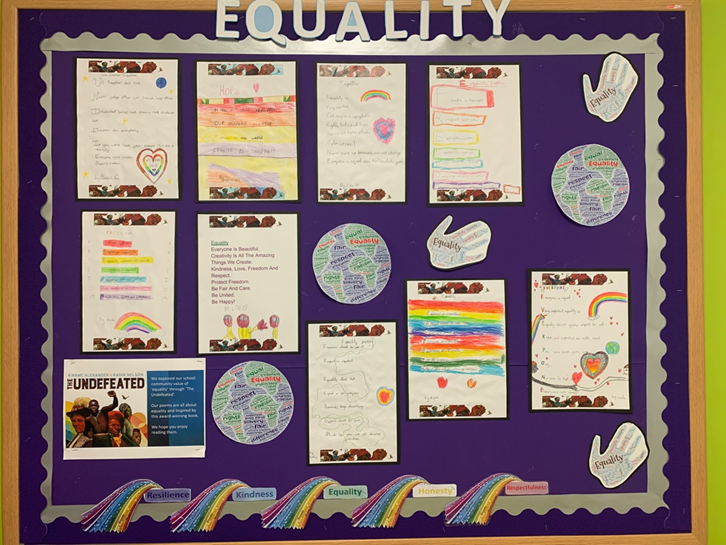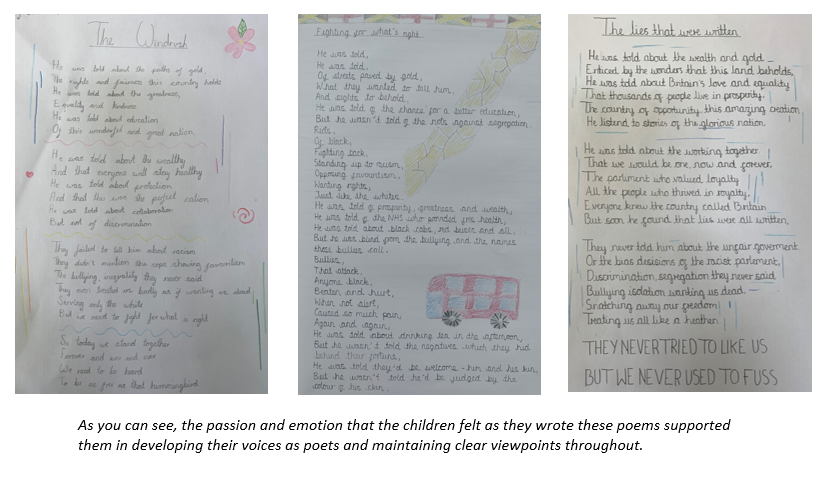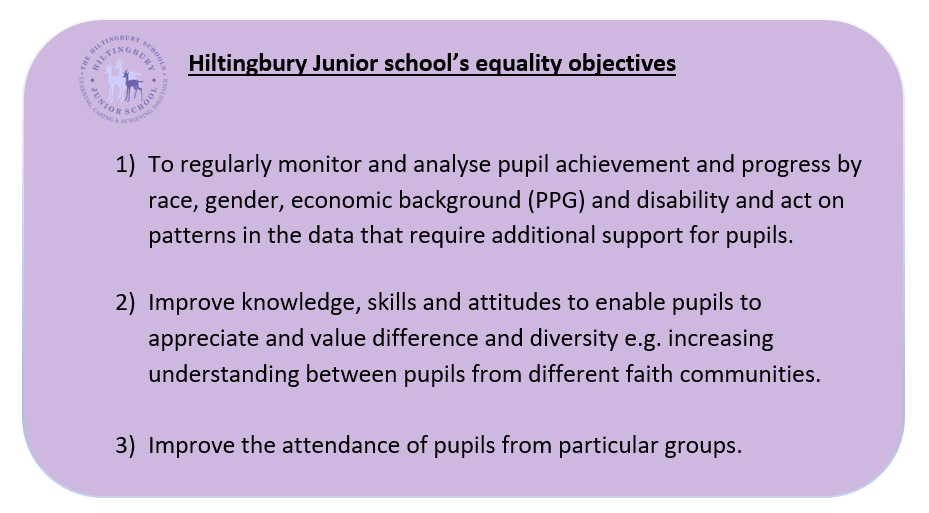Equality - How we drive equality awareness in our school
Equality at Hiltingbury Junior School
As such a key priority to us, equality was voted as one of our 5 Hiltingbury Junior School community values, launched and explored in depth during the Autumn term of 2021. As an outcome, the pupils wrote their own definition of for equality:
‘Equality means that everybody is treated fairly, and that we embrace and celebrate our differences and diversity at Hiltingbury, in our community and across the world.’
Equality is also driven through our English and broader curriculum:
Rich texts, rich themes, rich writing outcomes
We all know the importance and immense value of using a variety of rich texts with well- sequenced learning journeys to drive our English curricula. However, as we also know, getting this right is not always straightforward: it requires deep thought, a degree of trial and error, and, above all, unwavering commitment and passion from our teaching and leadership teams. And then, just when we think we have our learning journeys perfected (well, more or less), another national lockdown is thrown our way, our pupils’ learning needs change – sometimes quite significantly – and, therefore, so must our plans.
Over the past two years at Hiltingbury, developing our English curriculum has been a key priority, but, coupled with the demands of ‘catch up’, such improvements have been filled with additional challenges. However, having worked strategically with the HIAS English team, we have seen notable improvements to writing at Hiltingbury. With a high standard of training and the development of the HIAS three-phase learning journey model, teachers now feel extremely inspired when planning writing journeys, and have a valuable ‘tool kit’ to support this: effective task design and scaffolding are now embedded within each learning journey; small steps and spaced learning opportunities are provided; purposeful and relevant grammar concepts are taught in context and high quality modelling and talk within the classroom have a significant, positive impact in supporting children’s progress. Our pupils talk passionately about writing and feel proud of their achievements.
As our writing journeys continue to evolve, finding the right texts is a challenge in itself. With the impact of the national lockdowns, we have had to carefully re-evaluate existing units to ensure that we provide children with accessible yet challenging texts. But for us, where the writing curriculum truly comes to life, is when rich and purposeful writing opportunities are identified, planned and embedded within purposeful themes that enrich the whole curriculum. This is not about forcing the learning under the umbrella of a theme for the sake of it: the learning needs genuinely to drive the theme, otherwise we are in danger of creating superficial links that do not serve to deepen knowledge and true understanding.
One recent example of a rich and highly successful theme came through the launch of our new Hiltingbury school community values of resilience, equality, honesty, kindness and respect. In Autumn 2, we explored equality, introducing this value through Alexander Kwame’s ‘The Undefeated’ - with its links to black history month - from which the children wrote acrostic poems. At Hiltingbury, we are privileged to have a diverse community, and many children were able to read their poems in their home language. We also voted for a whole school definition of what equality means to us:
‘Equality means that everybody is treated fairly, and that we embrace and celebrate our differences and diversity at Hiltingbury, in our community and across the world.’
Our year 6 pupils were highly motivated by this theme. Their strength of feeling about the injustices we had discussed oozed out in their conversations, and as we read Benjamin Zephaniah’s ‘Windrush Child’ as a text driver, the writing opportunities enabled the children to passionately express their own views. Inspired by John Agard’s poem ‘Checkin Out Me History’, they wrote their own poems from the main character’s viewpoint

Schools are required to publish information which is updated annually showing how they comply with the equality duty and to set at least one equality objective every 4 years. The need to advance equality of opportunity is defined in the Equality Act 2010 as having due regard to the need to:
- Remove or minimise disadvantages.
- Take steps to meet different needs.
- Encourage participation when it is disproportionately low.
The public sector equality duty extends to the following protected characteristics:
Race
Disability
Sex
Age (as an employer, not regarding pupils)
Religion/Belief
Sexual Orientation
Pregnancy and Maternity
Gender Reassignment

Please see our school Equalities policy below.
